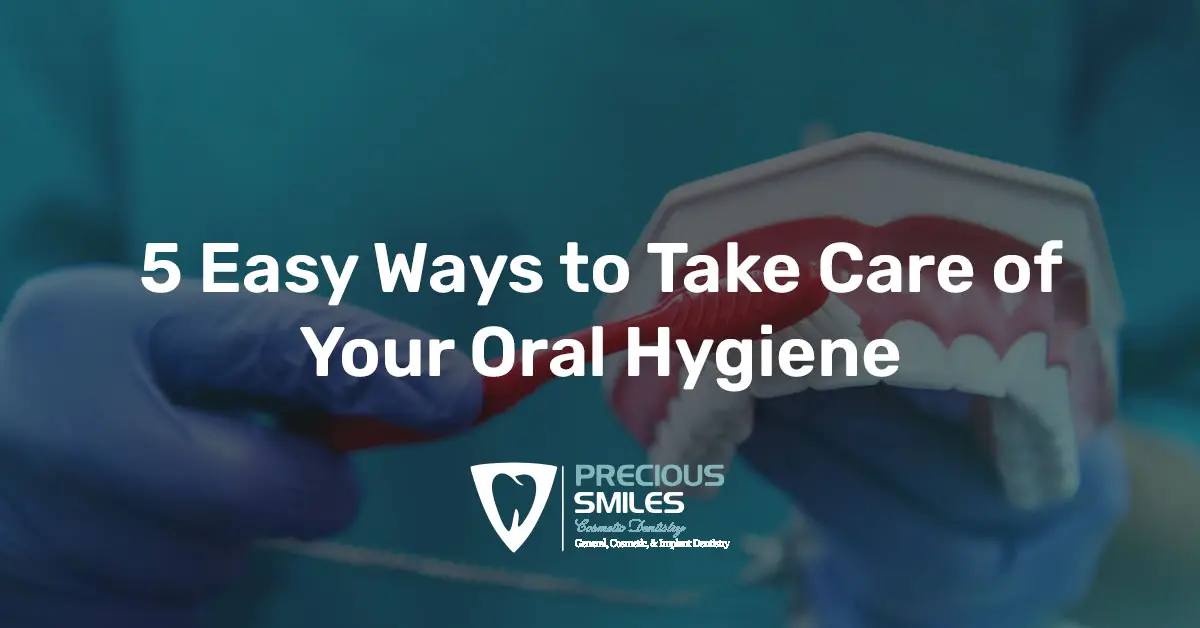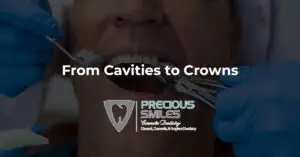When we think about health and wellness, we often focus on eating well, exercising, and getting enough sleep. But there’s one crucial area of health that people tend to overlook: oral hygiene. Your mouth is the gateway to your body, and taking care of it doesn’t just help you keep a beautiful smile—it also helps protect your heart, lungs, digestive system, and overall health.
Whether you’re aiming for pearly whites or simply want to avoid painful dentist visits, daily dental care is the key. The good news? It doesn’t have to be complicated. Let’s break it down into 5 simple, effective, and dentist-approved steps to keep your teeth and gums healthy for years to come.
1. Brush Like You Mean It – Twice a Day, Every Day
You’ve heard this since you were a kid, but it’s worth repeating: brushing your teeth twice a day is non-negotiable. This simple habit removes food particles, bacteria, and plaque that can cause cavities and gum disease.
How to brush properly:
- Use a soft-bristled toothbrush and fluoride toothpaste.
- Brush for 2 full minutes, dividing time equally between all four sections of your mouth.
- Hold the brush at a 45-degree angle to your gums and use gentle, circular motions.
- Don’t forget to brush your tongue, where bacteria love to hide.
Pro tip: Replace your toothbrush every 3–4 months or sooner if the bristles are frayed. Electric toothbrushes often clean more efficiently than manual ones.
2. Floss Like a Boss – Once a Day is Enough
Flossing is probably the most ignored part of oral care, but it’s just as important as brushing—maybe even more. Your toothbrush can’t reach between your teeth or under the gumline, where food and plaque can accumulate.
Flossing benefits:
- Prevents cavities between teeth
- Reduces bad breath
- Helps prevent gum disease (gingivitis and periodontitis)
Tips for effective flossing:
- Use about 18 inches of floss, winding most of it around your middle fingers and using your thumbs and forefingers to guide it.
- Gently slide it between your teeth and curve it into a “C” shape to clean both sides of each tooth.
- Use a clean section of floss for each tooth.
Not a fan of traditional floss? Try floss picks, water flossers, or interdental brushes—there are options for every preference.
Beyond Bad Breath: What Your Mouth is Trying to Tell You

3. Watch What You Eat – Your Teeth Will Thank You
Your diet has a direct impact on your oral health. Sugar isn’t just bad for your waistline—it’s the number one enemy of your teeth.
Foods and drinks to limit or avoid:
- Sugary snacks and drinks (soda, candy, pastries)
- Acidic drinks (citrus juices, energy drinks, wine)
- Sticky foods that cling to teeth (dried fruit, caramel)
Smile-friendly foods:
- Crunchy fruits and veggies like apples, carrots, and celery (they act like natural toothbrushes)
- Cheese, milk, and yogurt (rich in calcium and phosphates)
- Leafy greens and almonds (good for gums and bones)
Bonus tip: Drink plenty of water throughout the day, especially after meals. Water helps wash away food particles and keeps your mouth hydrated.
4. Avoid Harmful Habits – Protect Your Smile
Some habits are just plain bad for your teeth—and you might not even realize it.
Oral habits to break:
- Smoking and tobacco use (stains teeth, causes gum disease and oral cancer)
- Chewing on hard items like pens, ice, or fingernails (can cause chips or cracks)
- Using your teeth as tools (to open bottles, tear packages)
- Clenching or grinding your teeth (especially during sleep)
If you grind your teeth at night, consider asking your dentist about a custom night guard to prevent enamel damage and jaw pain.
The Psychology of Smiling: How a Healthy Smile Impacts Confidence and Mental Health
5. Don’t Skip the Dentist – Prevention is Better Than Cure
Even with perfect brushing and flossing, professional dental care is essential. A dentist can catch early signs of issues you can’t see or feel yet—like cavities, gum recession, or even early signs of oral cancer.
Dental visit checklist:
- Go for a check-up and cleaning every 6 months
- Ask for a fluoride treatment if you’re cavity-prone
- Discuss any sensitivity, pain, or cosmetic concerns
Regular visits also give you a chance to talk to your dentist about whitening, orthodontics, or other treatments to enhance your smile and confidence.
A Healthy Smile is a Lifelong Investment
Taking care of your teeth doesn’t need to be complicated or time-consuming. With just a few consistent habits—brushing, flossing, eating smart, avoiding harmful habits, and visiting your dentist regularly—you can protect one of your most valuable assets: your smile.
Your teeth are meant to last a lifetime. Start treating them like it.




